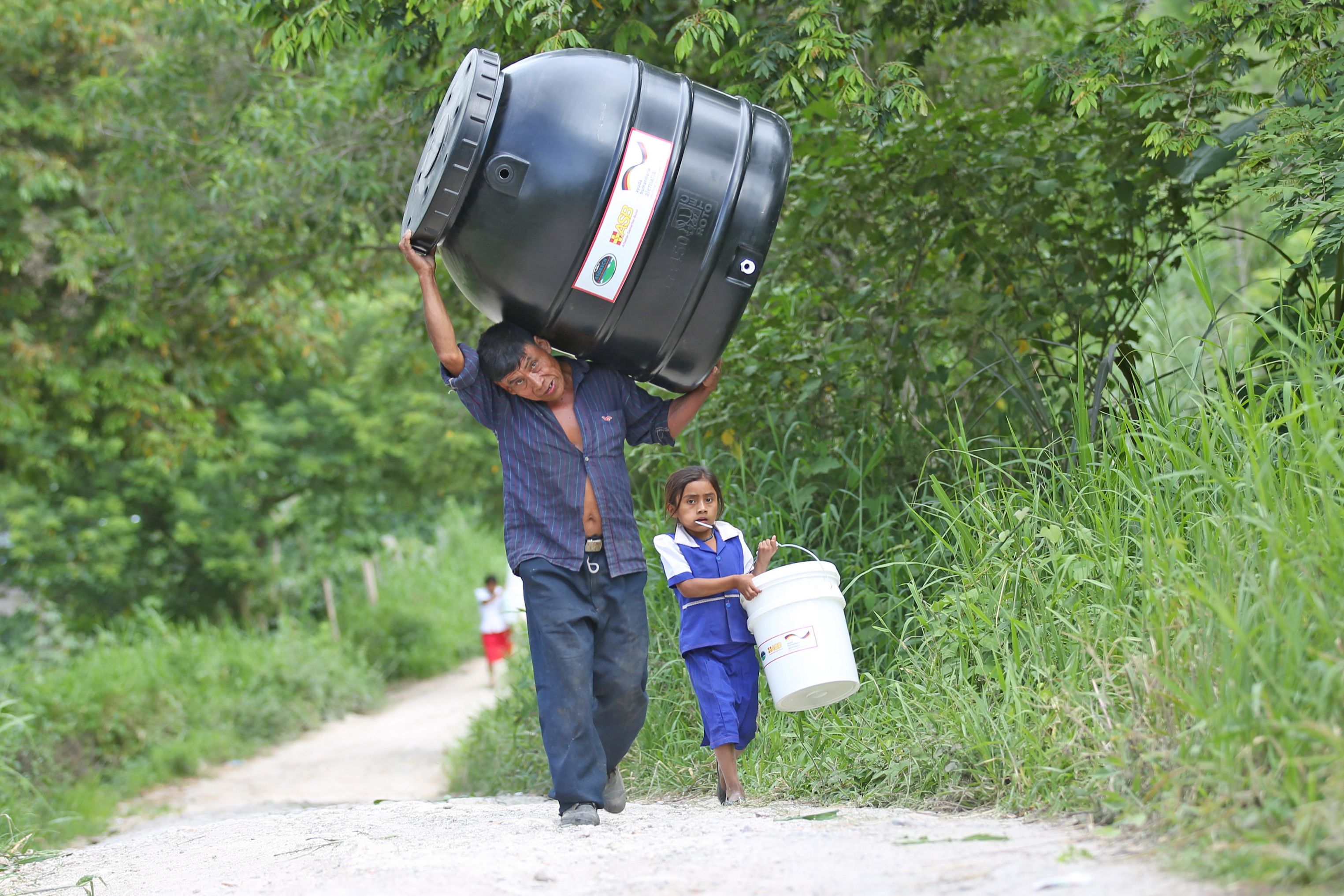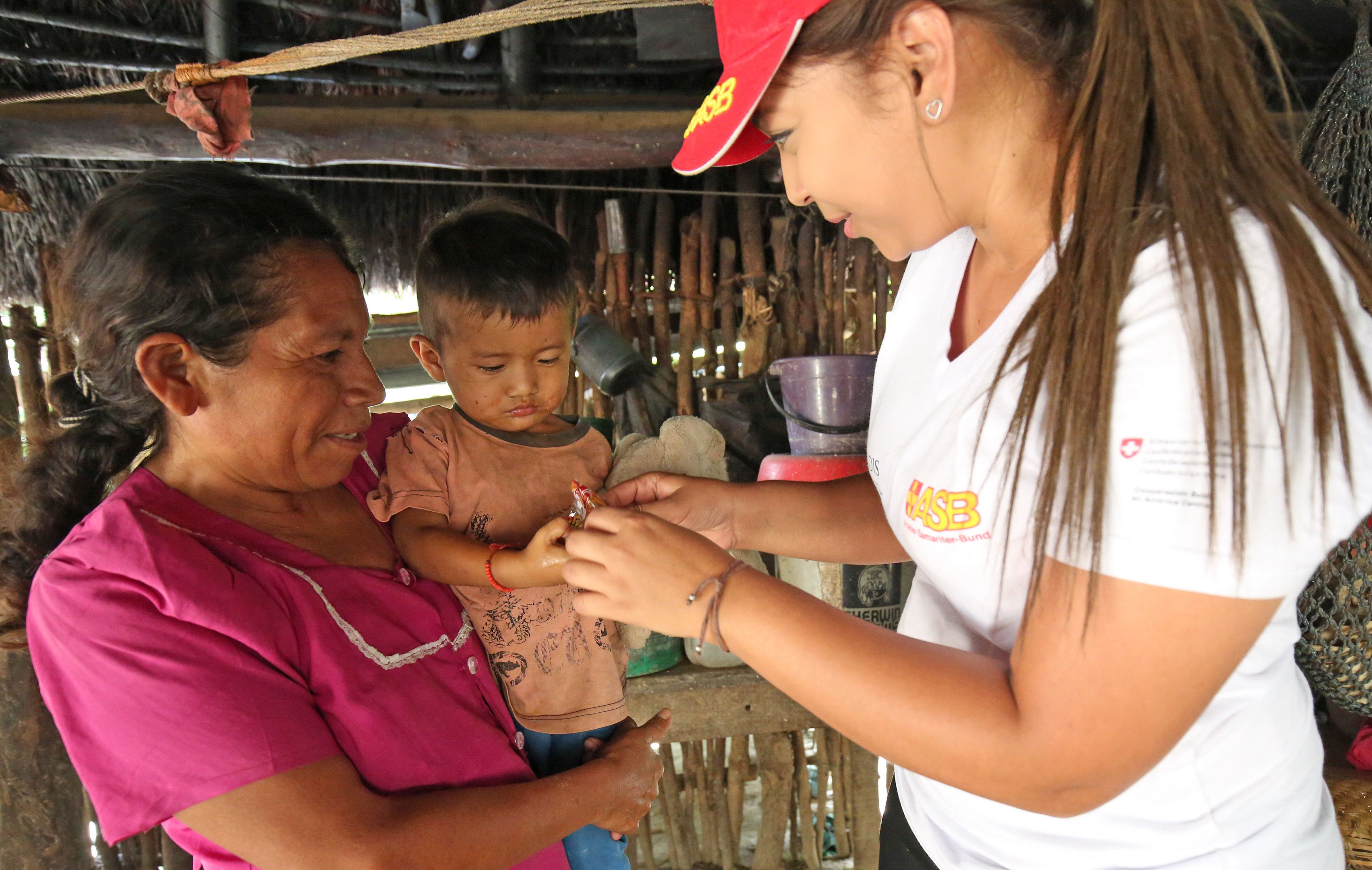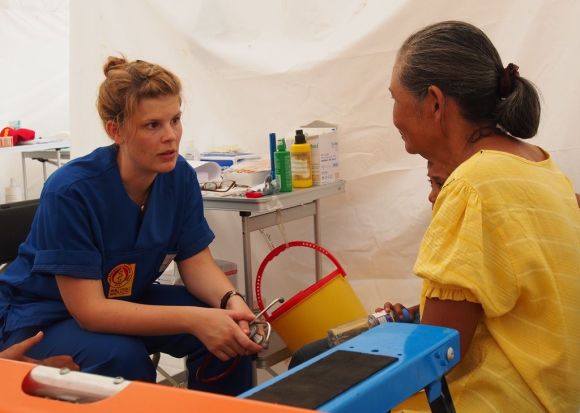( PDF / 3,018.31 KB )
Developing climate-resilient water, sanitation and hygiene services in 13 countries
Climate change is impacting poor regions around the world particularly hard. These areas often have fewer resources to adapt to changing climate and environmental conditions or to mitigate their effects. Through a global project in 13 countries, ASB, arche noVa, and local partner organizations are helping communities that are especially hard hit by the effects of climate change to better protect themselves against droughts, floods, and other extreme weather events.
A total of 545,490 people in 129 communities and villages in 18 regions/provinces in the following countries will be reached:
- Iraq, Niger, Bangladesh, Haiti, Nicaragua, Honduras, Indonesia, and the Philippines (implementation by ASB & partner organizations)
- Lebanon, Somalia (Somaliland), Ethiopia, Myanmar, and Mali (implementation by arche NoVa and partner organizations)
The project entitled "Strengthening local climate-sensitive and universal WASH capacities through the application and dissemination of the green humanitarian aid (ECT) approach" aims to ensure that these vulnerable communities have inclusive and sustainable water, sanitation, and hygiene (WASH) as well as disaster preparedness capacities by the end of the project. All population groups are involved, keeping in mind their respective needs and opportunities. They learn to take climate change risks into account and prepare for extreme weather events, reduce their effects and provide (proactive) humanitarian aid when necessary.
The project is being carried out as part of a consortium led by ASB in cooperation with arche noVa e. V. and the German Toilet Organization e. V. (GTO). It will run for three years (November 1, 2023, to October 31, 2026) and is financed by the German Federal Foreign Office and Aktion Deutschland Hilft (ADH) with a total budget of €12,271,400.
The measures focus on four key areas
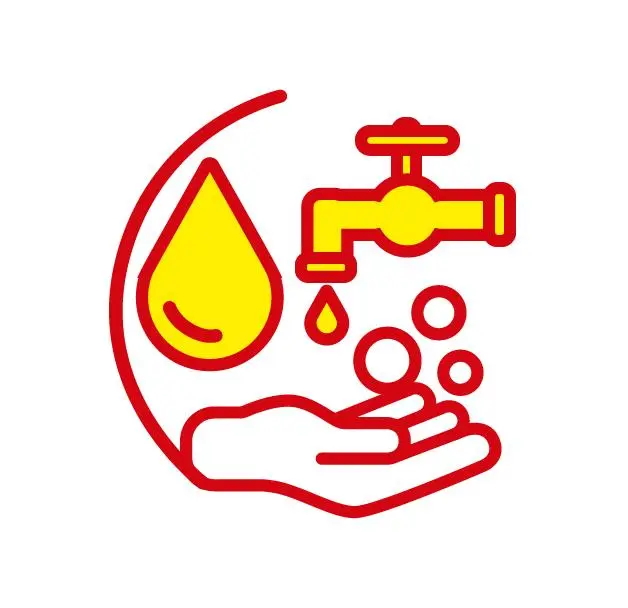
Access to climate-adapted and inclusive water supply, sanitation, hygiene, and waste disposal
Communities receive customized solutions for clean water, sanitation, and hygiene that fit local conditions and the challenges posed by climate change.
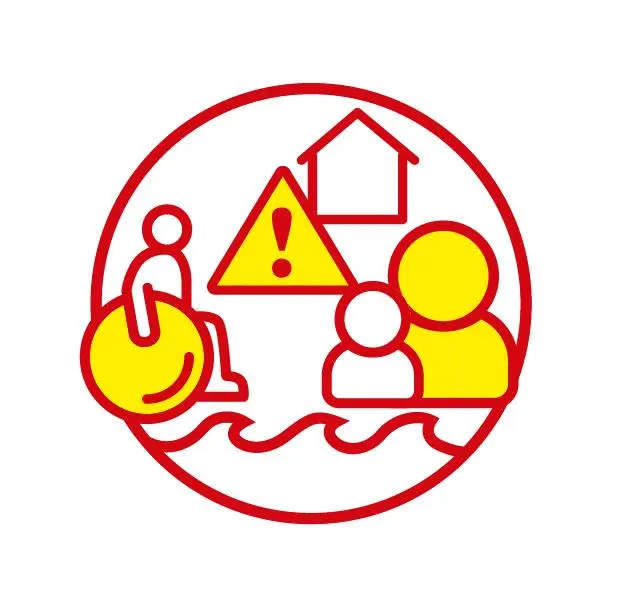
Strengthening inclusive disaster prevention and emergency aid
Local actors are trained in disaster prevention and management, with a special focus on inclusive early warning systems and anticipatory humanitarian assistance. Vulnerable groups are proactively involved in these processes. Local emergency response capacities are also further strengthened.
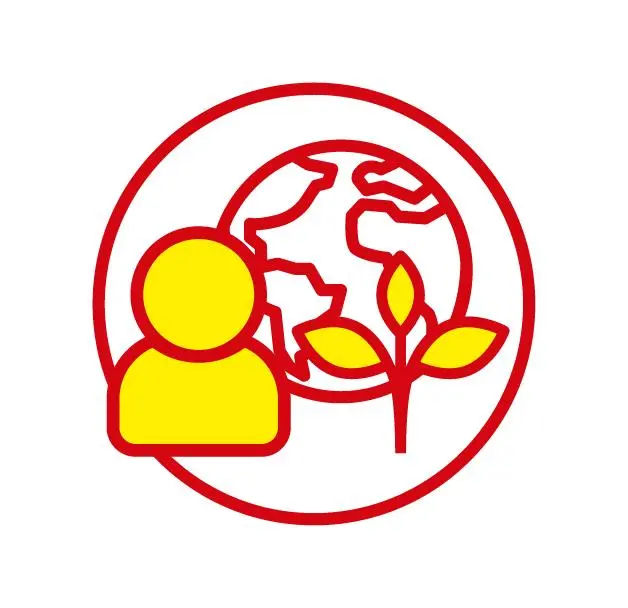
Promotion of green humanitarian aid
The "green humanitarian aid" approach is being consistently implemented by developing measures that place environmental protection and sustainability at the heart of humanitarian action. This includes signing the Climate and Environment Charter.
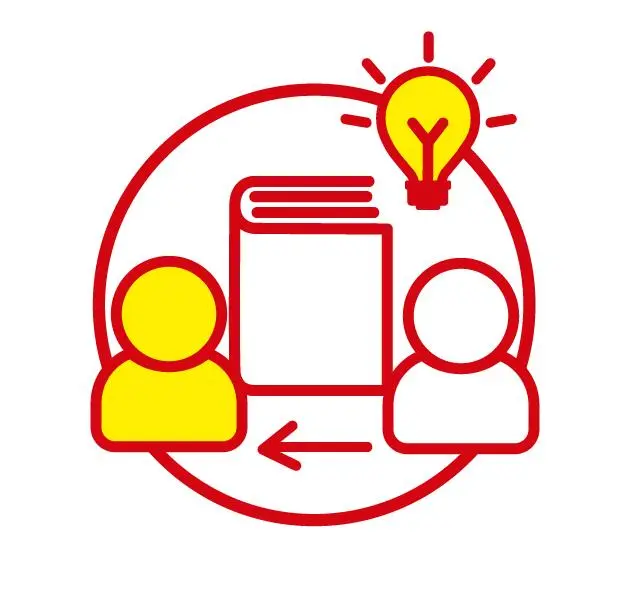
Building resilience through knowledge sharing
Knowledge exchange is promoted at various levels – local, regional, national, and global. The focus is on dialogue and cooperation between different actors, particularly in the areas of green humanitarian aid and disaster prevention and mitigation. The aim is to strengthen community resilience and develop sustainable solutions via the exchange of best practices and innovative approaches.
Overview of ECT WASH project countries
- Countries marked in yellow: Implementation by ASB & partner organizations
- Countries marked in orange: Implementation by arche NoVa & partner organizations
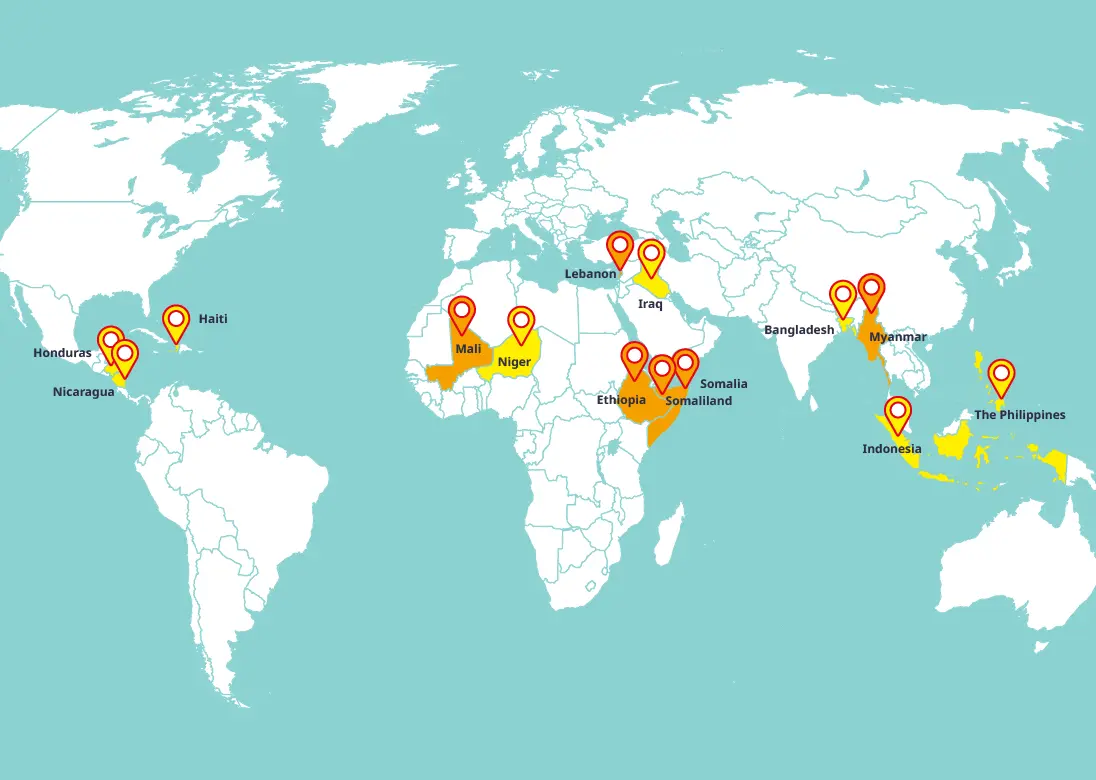
The specific approach of each country within the global framework of the project
Bangladesh | Philippines | Indonesia | Honduras | Nicaragua | Haiti | Niger | Iraq
Bangladesh
The ECT* WASH project will be rolled out from November 2023 to October 2026 in all nine districts of the Southkhali Union in Sarankhola Upazila, Bagerhat District, Bangladesh. This area is especially vulnerable to natural disasters like tropical cyclones and storm surges, as well as the effects of climate change, including high salinity and drought. Most of the population is marginalized and lacks the knowledge and resources to adequately prepare for these disasters.
Project region: Southkhali Union, Sarankhola Subdistrict, Bagerhat District in Bangladesh
Project volume: €684,632 (via ASB Indonesia/Philippines)
Project partner: Centre for Disability in Development (CDD)
*Environmental sound and Climate sensitive Transformation of humanitarian wash
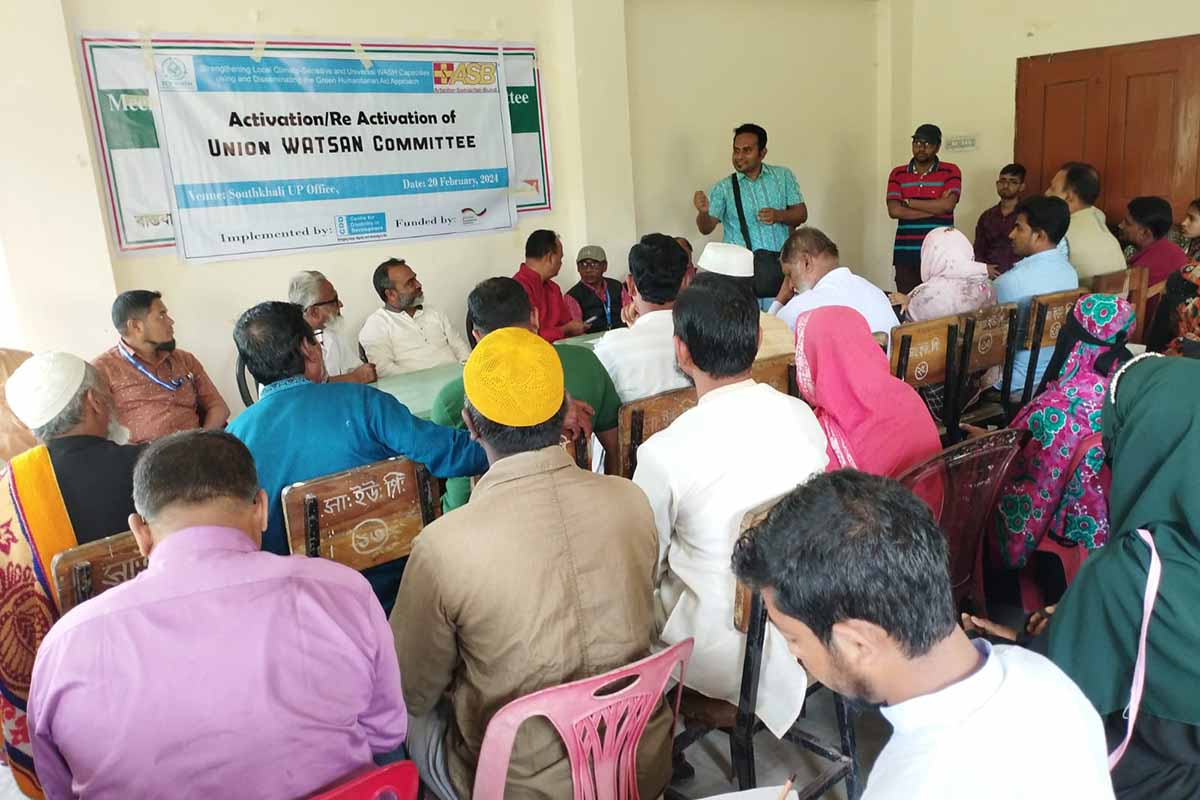
Philippines
The Philippines is the country most vulnerable to the effects of natural hazards and the responsiveness of its population. In some communities, people are not only exposed to natural hazards but also face an increased risk of displacement and death due to armed conflict and violence. Thus, ensuring that humanitarian assistance is provided in a timely, appropriate, climate-sensitive and inclusive manner is essential.
Project region: Philippines
Project volume: €684,000 (via ASB Indonesia/Philippines)
Project partner: Assistance and Cooperation for Community Resilience and Development (ACCORD)
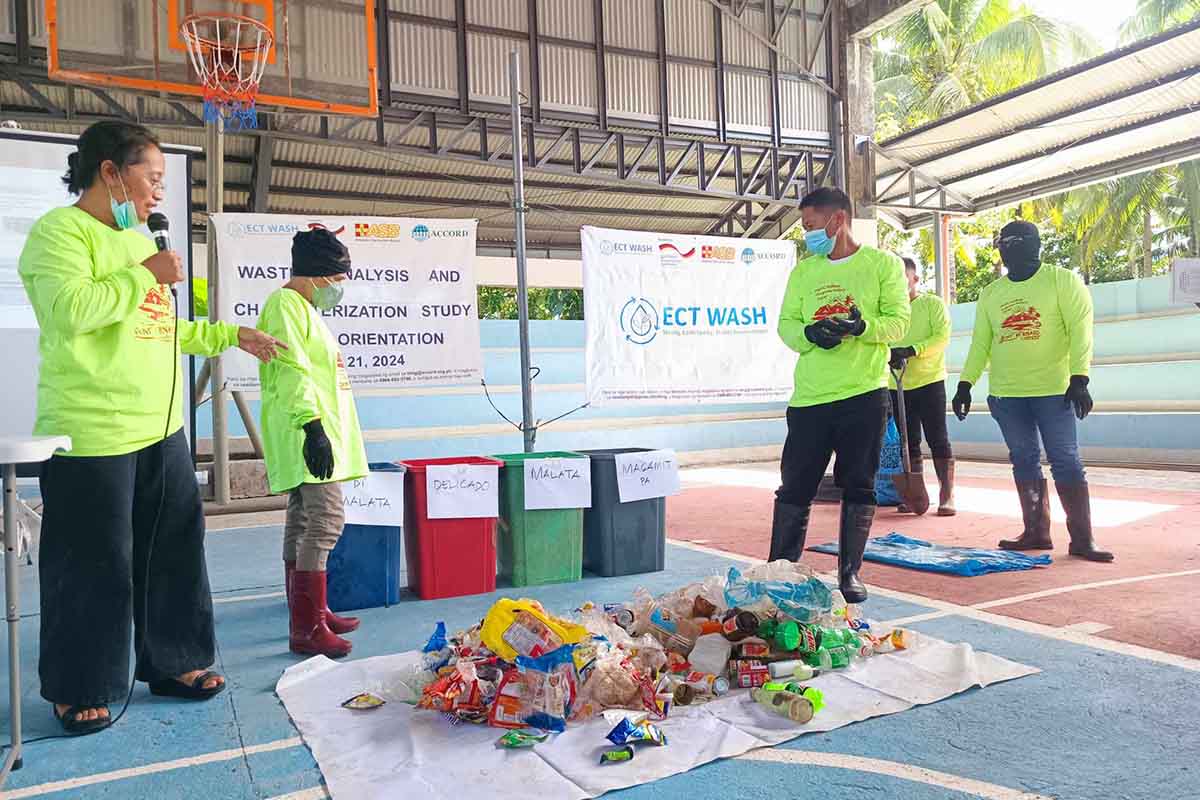
Indonesia
The Seger Waras* program is being implemented in four villages: Ngadiharjo and Giritengah in the regency of Magelang, and Girisuko and Ngalang in Gunung Kidul. These areas need accessible WASH services, safe latrines, and adequate sanitation facilities. Some communities are impacted by drought, while others are prone to flooding and landslides – especially during the rainy season.
*Seger Waras is an acronym devised by ASB Indonesia to simplify the name of the entire WASH program.
Project region: Two villages in Gunung Kidul Regency and another two in Magelang Regency
Project volume: €757,037 for Indonesia
Project partner: Implemented by ASB Indonesia
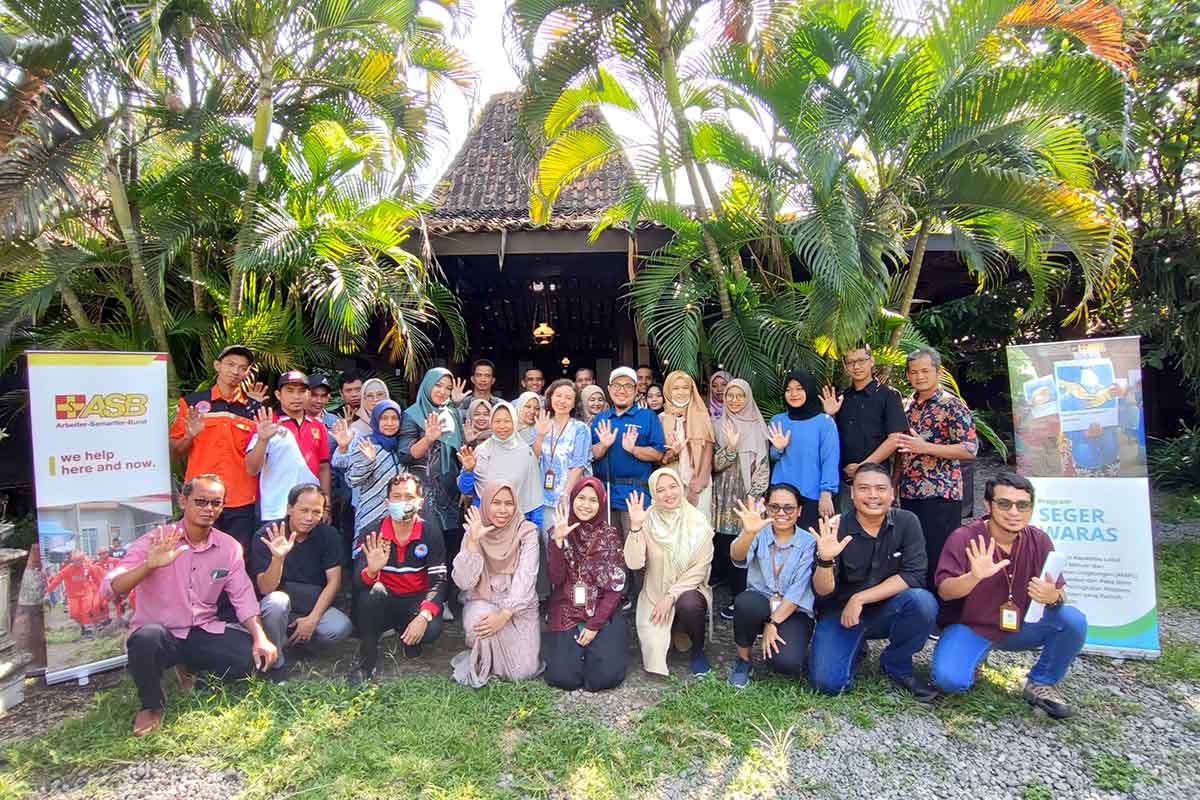
Honduras
According to the Climate Risk Index, Honduras is the country most affected by climate change worldwide. The western region particularly suffers from frequent drought , making it the country’s poorest region with the highest level of food insecurity. The ECT-WASH project aims to ensure that the population of three highly vulnerable communities (Apacilagua, El Corpus, and Concepción de María) has access to clean water and sanitation facilities.
Project region: Honduras
Project volume: €413,011 for Honduras
Project partner: APEDES
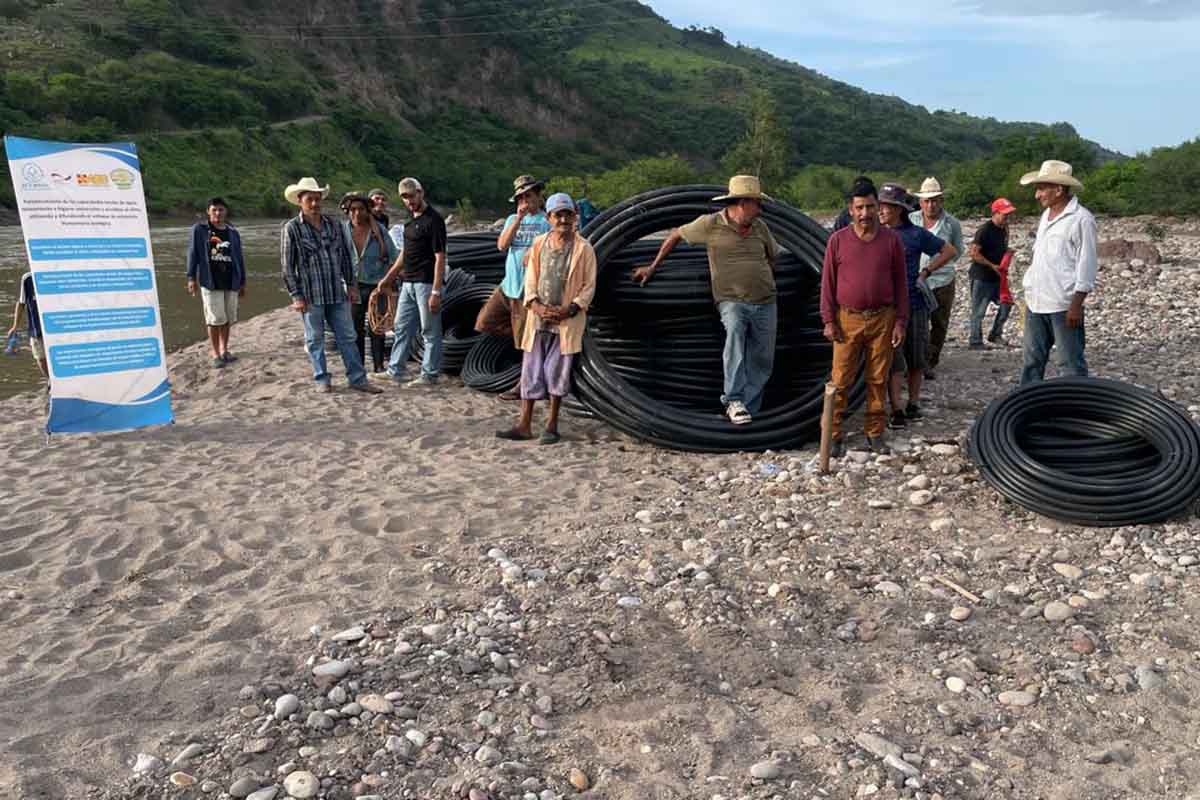
Nicaragua
The increasingly deteriorating environment in Nicaragua's dry corridor urgently needs protection. The decline in agricultural production has led to food insecurity and falling household incomes in rural areas of this region. ASB has chosen UNAG as its implementing partner for the ECT-WASH project in Nicaragua. UNAG is in contact with all municipalities in the project areas and the relevant Nicaraguan government agencies legally responsible for dealing with emergencies.
Project region: Two communities (San José de Cusmapa, San Juan de Limay)
Project volume: €166,425for Nicaragua
Project partner: UNAG/ASB

Haiti
Climate change is leading to a major increase in extreme weather events, some of which are especially impacting communities in Haiti. To meet the growing need for humanitarian aid, the ECT project aims to build WASH capacities that take climate and environmental risks into account. The project ensures that all people have access to basic WASH services. Local disaster preparedness and response should be strengthened and environmentally friendly humanitarian approaches promoted. The project is expected to benefit 45,133 people.
Project region: Haiti (Saint-Jean du Sud in the South Department and Corail in the Grand'Anse Department)
Project volume: €686,000 for Haiti
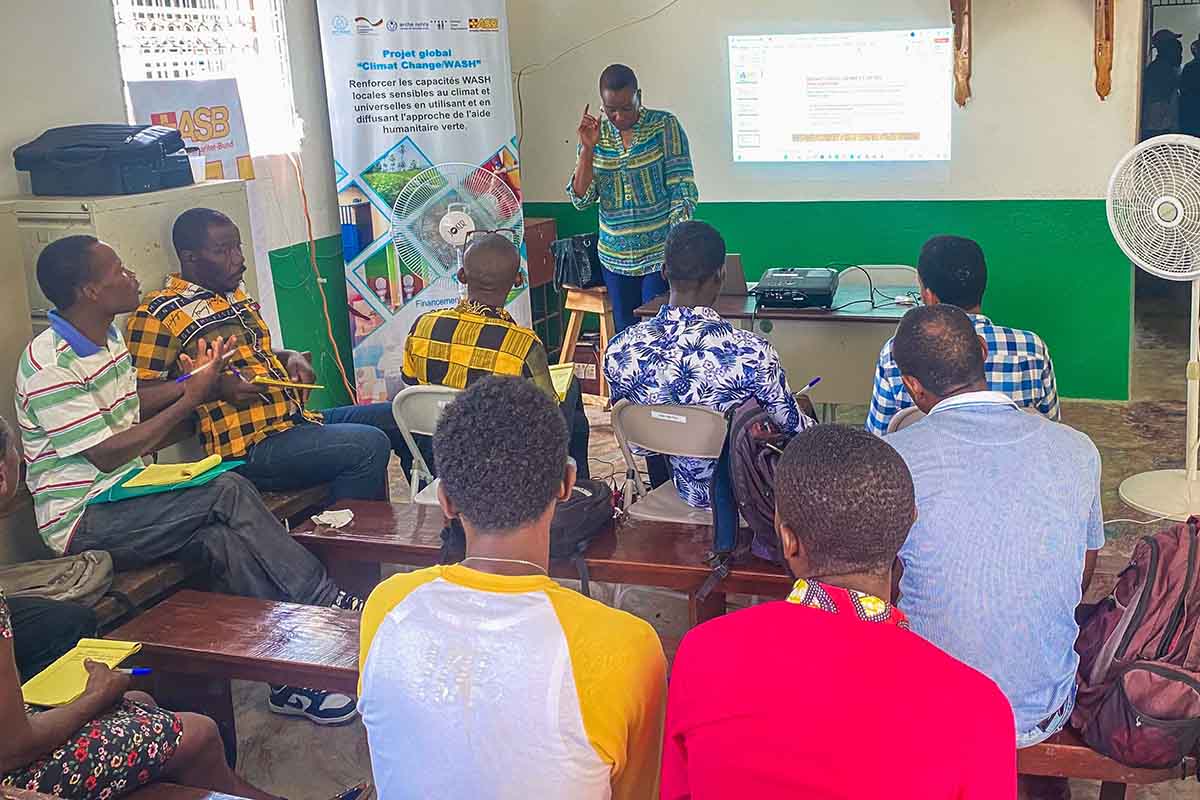
Niger
The ECT project is being rolled out by ASB Niger and its partner organization Adkoul in the city of Tahoua and the department of Tillia in northwestern Niger, benefiting 35,320 people. The overall objective of the project is clearly defined: to enable vulnerable communities to develop WASH capacities that consider the effects of climate and environmental risks. In addition, communities should be able to prepare for and anticipate extreme weather events and provide proactive humanitarian assistance.
Project region: Tahoua, Tillia (Niger)
Project volume: €680,000 for Niger
Project partner: Adkoul
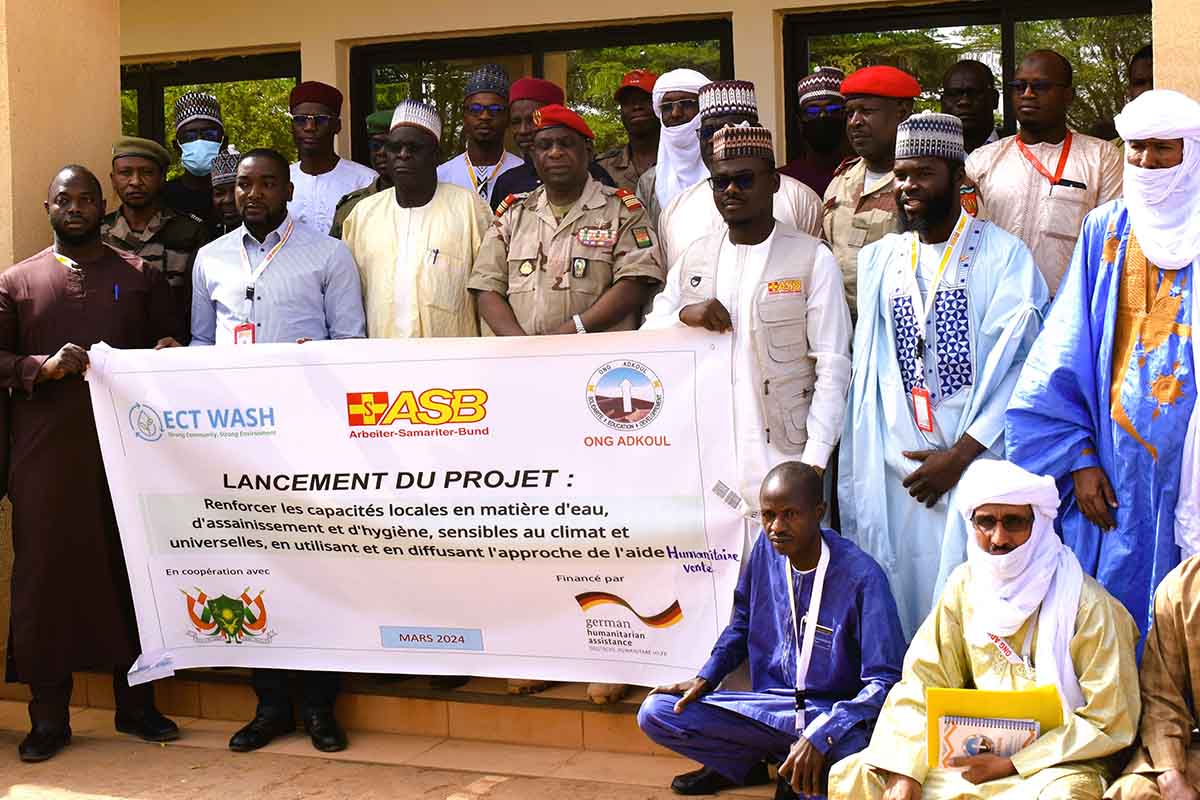
Iraq
The ECT project will support vulnerable communities in building comprehensive WASH capacities that factor in climate and environmental risks. This will enable people to better prepare for and anticipate extreme weather events and provide proactive humanitarian assistance. The focus is on 73,000 people, including employees of various institutions, government agency representatives three primary health care centers, three non-governmental organizations, and six municipalities.
Project region: Salahaddine Governorate, Iraq
Project volume: €650,000 for Iraq
Project partner: Performed by ASB
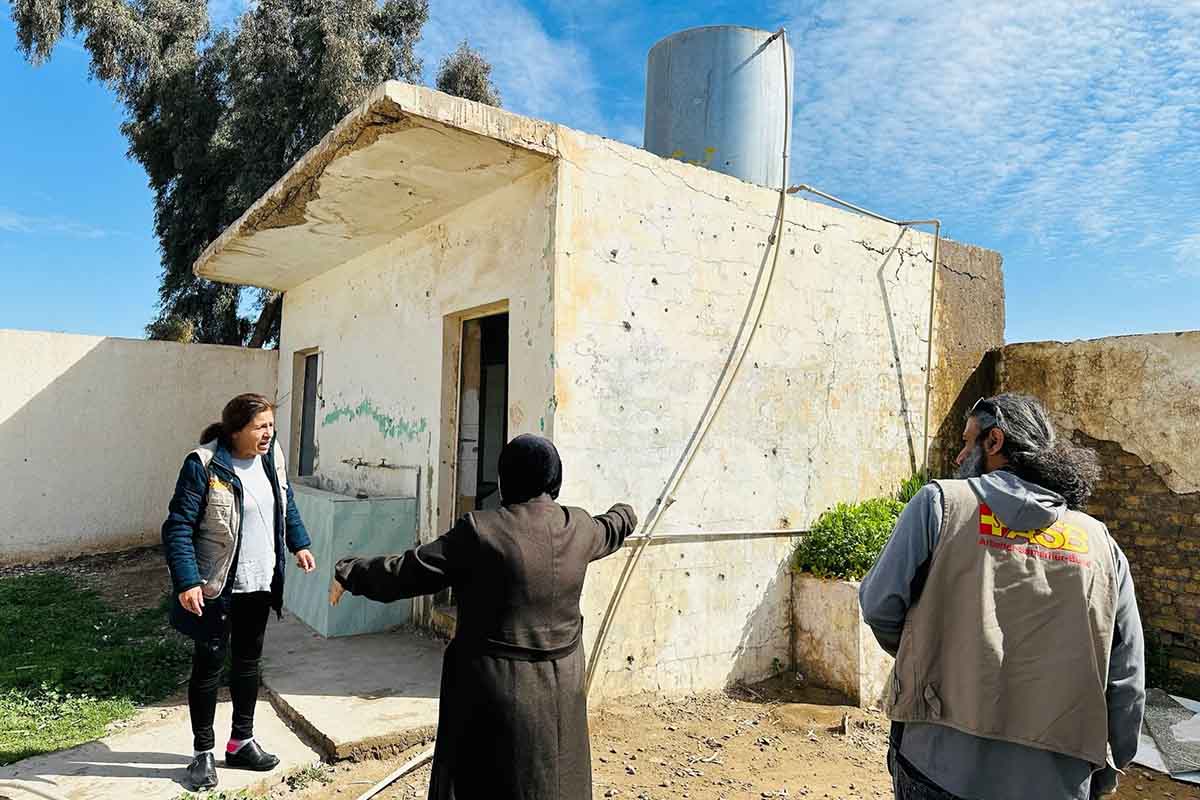
Overview of publications and further information
( PDF / 5,095.12 KB )
( PDF / 201.38 KB )
( PDF / 259.59 KB )
( PDF / 273.60 KB )
( PDF / 205.57 KB )
( PDF / 261.83 KB )
( PDF / 211.25 KB )
( PDF / 232.07 KB )
( PDF / 396.91 KB )
( PDF / 267.45 KB )
( PDF / 297.73 KB )
( PDF / 491.64 KB )
( PDF / 265.44 KB )
( PDF / 193.97 KB )
( PDF / 264.54 KB )
Contact
Global Program Officer, WASH and Climate Change
Phone: +4930 2325786-129
Mobile Number: +49172 2368269
Arbeiter-Samariter-Bund Deutschland e. V.
Alte Jakobstraße 79-80
10179 Berlin

